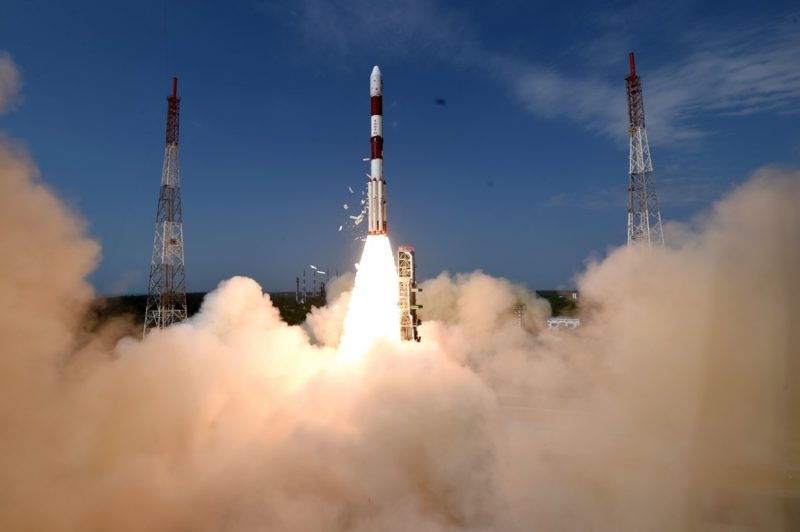Spaceflight Prepares to Launch 11 Spacecraft on India’s PSLV

PSLV-C38 takes off from Satish Dhawan Space Center on June 23, 2017. Photo: ISRO.
Spaceflight announced it will be launching 11 spacecraft in early January 2018 from the Indian Space Research Organization’s (ISRO) Polar Satellite Launch Vehicle (PSLV). Spacecraft include Finland’s Iceye-X1 Synthetic Aperture Radar (SAR) microsatellite, Planetary Resources’ Arkyd-6 6U asteroid prospecting demonstration cubesat, four Spire Global Lemur 2 cubesats, Astro Digital’s Landmapper-BC3, AmSat’s Fox-1D cubesat, and others.
Spaceflight performed the cubesat integration at its Seattle, Washington integration facility and is in the process of shipping the spacecraft to India for the PSLV-C40 mission. The PSLV rocket is scheduled to lift off from India’s Satish Dhawan Space Center in early January 2018 with the Cartosat 2ER navigation satellite, in addition to Spaceflight’s rideshare customers.
One first-time customer on the mission is Finland’s Iceye with the country’s first commercial satellite, Iceye X1. Iceye developed its own SAR sensor technologies suitable for satellites under 100kg in weight, making it one of the bigger payloads on the PSLV-C40 mission. This is Iceye’s first proof-of-concept microsatellite mission with a SAR sensor as its payload and also the its first SAR satellite in this size, enabling radar imaging of the Earth through clouds and even in total darkness, according to the company. Potential use-cases for the data are monitoring sea ice movements or marine oil spills, and prevention of illegal fishing.
According to Spaceflight, it has negotiated the launch of more than 120 satellites on behalf of its customers and has contracts to deploy nearly 200 more through 2018. The company plans to coordinate and deploy its largest launch to date in 2018 with its first dedicated rideshare mission aboard a SpaceX Falcon 9.